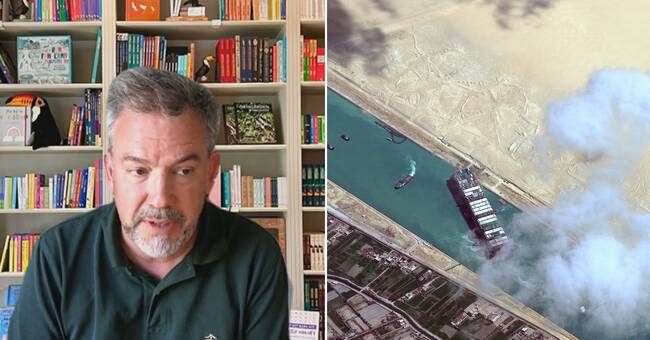A ship comes loaded - but not with children's books.
Prices for container freight from China have increased by about 850 percent in the past year, partly due to covid-closed major ports, partly due to the chaos that arose when the freighter Evergreen got stuck in the Suez Canal this spring.
In Förlagspodden, Tukan's CEO Christian Bang Melchior testifies about congested production chains, constant delays and paper shortages that cause prices to skyrocket.
Some children's books with audio modules, doors, fabrics and tabs require manual handling, and they are often made in China due to the fact that the individual components are manufactured there and that the production costs are generally low.
- There will be a shortage of a certain type of more advanced children's books.
Craft books with doors, stickers and more are difficult to bind in Europe.
Closed ports
Kulturnyheterna has spoken to several children's book publishers who have experienced similar problems with delays and high costs for titles printed in China, as well as in Malaysia and the Middle East.
- Everything that is transported by sea has been towed with delivery problems.
At the beginning of the pandemic, an imbalance in logistics arose when large ports were closed due to covid and queues arose at the carriers.
Books that were to be released this August have not arrived, says Elin Lundh, children's book manager at Lind & Co.
Publishers have often joined international agreements that prevent rapid changes to Swedish or European printing companies.
- We are quite tied to large agreements with China because most children's books bought from abroad are printed in several languages at the same time.
English-language publishing giants set the agenda, says Elin Lundh.
Rabén & Sjögren prints most of his books in Latvia.
Only puzzles, Advent calendars and certain co-productions are made in China.
Higher prices
- With the exception of Harry Potter, we do not do many co-productions where we become dependent on foreign publishing agreements.
It is rather the case that we are the ones who control the co-productions;
of Astrid Lindgren books, Mamma Mu and so on, says Olle Lidbom, communications manager at Rabén & Sjögren, and adds that it feels good not to have to rely on deliveries from China:
- It reduces carbon dioxide emissions and we also avoid stomach aches in collaborations with countries that have democracy problems.
Several children's book publishers such as Tukan and Lind & Co.
is now investigating whether it is possible to print more titles in Europe.
Book buyers can expect higher prices in the future:
- We try to take into account delays when we set the release date. We probably need to raise the prices of children's books, and start printing certain titles in Europe - if we do not see an end to the problems and a change soon, sums up Elin Lundh at Lind & Co.

